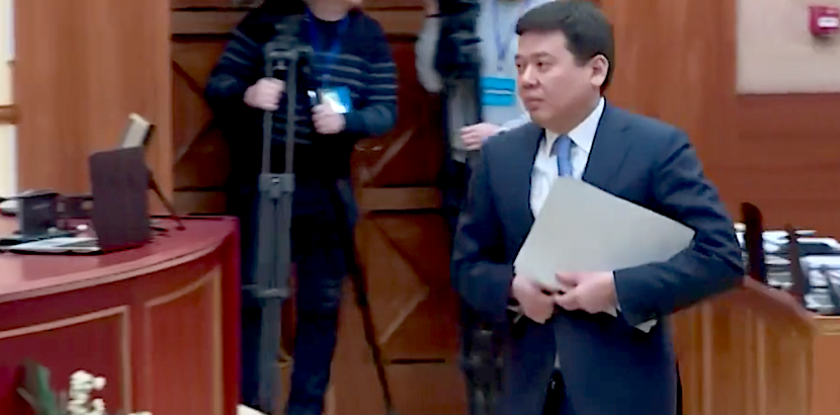Kazakhstan may lose its share in the country’s biggest oil field. The Amsterdam Court of Appeal has confirmed the validity of the International Court of Arbitration’s decision made in December 2013 in Stockholm that Kazakhstan is to pay the Statis US$ 543 mln on the Netherlands territory.
Thus, the righteousness of the Moldovan entrepreneurs’ family in their dispute with the Kazakh Ministry of Justice has been confirmed, informs KZ.MEDIA.
In their appeal, Kazakhstan’s attorneys were trying to prove that the Statis had been engaged in fraudulent operations since they overestimated the cost of the construction of the LPG plant they were building near Borankol in West Kazakhstan. Beketayev’s strategy was simple – by proving the fact of the cost overestimation, they could have extracted it from the overall sum of expenses paid by the Siatis after which the arbitration verdict would have turned into nothing but paper.
The trial had been going on for almost three years and, in the end, resulted in a complete defeat of Kazakhstan. In the decision of July 14, 2020, the Amsterdam Court rejected all the arguments presented by the Kazakh attorneys.
According to the decision, the Statis did not misinform the arbitration court in re the estimated value of the plant construction and the statements on the alleged fraudulent activities did not have much influence on the outcome of the trial.
The inconsistencies of the Ministry of Justice’s strategy that did not use the overestimation argument during the arbitration trial but then suddenly chose to “include” it in the appeal had played an important role in the Amsterdam Court’s decision. No court in the world likes this kind of somersaults. The Amsterdam Appeal Court is no exception.
The verdict registers that Kazakhstan’s arguments contradict the testimonies of its own experts. Which is particularly striking since the situation was utterly clear. As of the start of the arbitration trial, the court notes, Kazakhstan had already been in control of the plant’s operations and, therefore, knew about the actual state of affairs since it had inspected the plant within the specified time.
All these disputes have already come down in history as an example of failure on the part of the Ministry of Justice and its head Marat Beketayev. What is much more important now is the future which looks much darker than the simple request to pay half a million dollars.
The thing is that the decision made on July 14 marked the final link in the whole chain of the previous decisions – the decision of that same Amsterdam Appeal Court made on May 7, 2019, that, in its turn, had confirmed the 2017 decision on the arrest of SWF Samruk-Kazyna’s shares in Dutch company KMG Kashagan B.V.
It is through this company – KMG Kashagan B.V. – that Kazakhstan participates in the international consortium that is developing Caspian Sea’s biggest oil field Kashagan.
So, the Statis have obtained the right to receive US$ 540 mln awarded by the Arbitration Court in 2013. They are going to do so via selling the entire arrested Kazakhstan’s shares in the amount of US$ 5.2 bln.
This is the action plan presented by Anatolie Stati, the president and sole owner of Ascom Group S.A. He said that the Amsterdam verdict gives the green light to the forced sale of the arrested shares in KMG Kashagan B.V.
Who is to be Kashagan’s “lucky” buyer is yet unknown.
Of course, one may presume that Stati’s intentions to sell the state’s share in Kazakhstan is but a strategy to pressurise the Kazakh authorities. However, something tells us that, in this particular case, the bets are significantly higher. For decades, Kashagan has been the symbol and the guarantor of the country’s independence. It is not just a business, it is real politics. And having a leverage over it is worth quite a few billions.
Let us remind you that, apart from the share in Kashagan, the Statis have managed to secure the arrest of Kazakhstan’s properties in the courts of Sweden, Luxembourg and Belgium in the amount of more than US$ 6.25 bln. Read more on the subject in our materials at KZ.MEDIA and KZ.expert.





